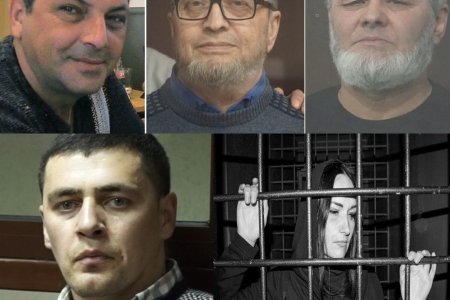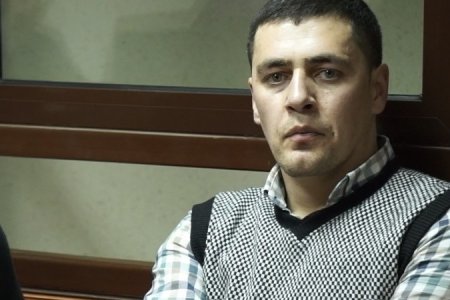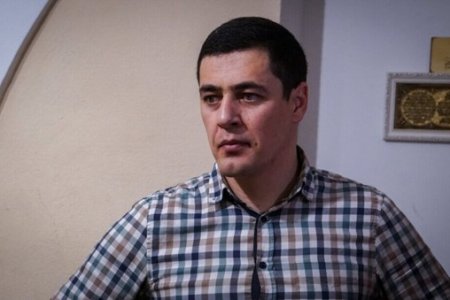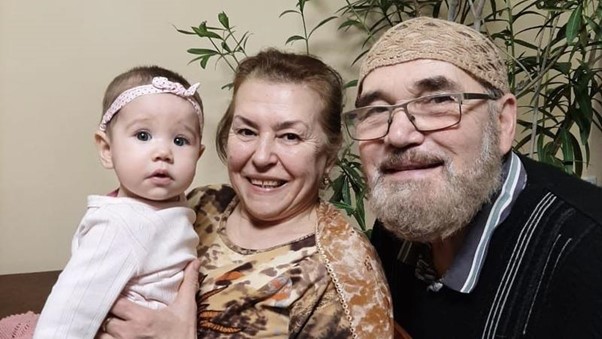
The ‘trial’ is shortly to begin in Russia of 68-year-old Khalil Mambetov and five other Crimean Tatar political prisoners. Khalil Mambetov is one of an ever-increasing number of Crimean Tatar pensioners whom the FSB has targeted for its conveyor belt prosecutions of Crimean Muslims on fake ‘terrorism’ charges. Plausibility is not an issue, as the ‘courts’ in occupied Crimea and Russia do not buck the FSB, and are essentially guaranteed to remand the men in custody and then, later, pass long sentences. This is in the absence of any recognizable crime, and on the basis of manifestly dubious ‘evidence’. The only difference lies in the individual victims themselves, their families and the medical issues meaning that all those involved in such persecution ‘know that they are likely to be sending the political prisoners to their death.
Second wave of arrests in Dzhankoi region of Crimea
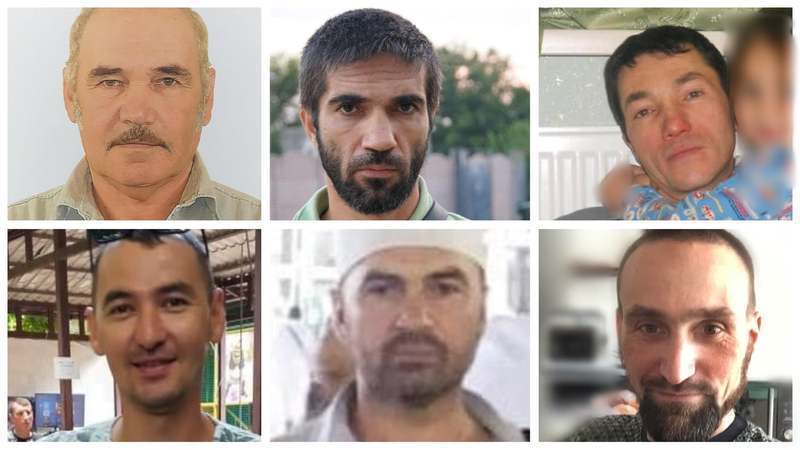
Armed FSB and other Russian enforcement officers, most in masks, burst into the homes of all six men on 24 January 2023. After ‘searches’ carried out without lawyers allowed to be present, the six men were taken away. Khalil Mamebetov (b. 1955); Osman Abdurazakov (b. 1984); Aider Asanov (b. 1963); Ekrem Krosh (b. 1985); Refat Seidametov (b. 1969) and Leman Zekeryaev (b. 1973)
Although in all such cases, the FSB make no pretence of looking for anything but ‘prohibited religious literature’ in the six homes (often brining this themselves and then claiming to have ‘found’ it), they are invariably reported by Russian and occupation ‘media’ to have “broken up a terrorist gang”.
The Crimean Tatars are indeed charged under Russia’s ‘terrorism’ legislation, but only because of a secretive and probably politically motivated 2003 Russian Supreme Court ruling declaring the peaceful, transnational Muslim organization Hizb ut-Tahrir ‘terrorist’. Hizb ut-Tahrir is legal in Ukraine and most other countries, but this one, flawed, ruling has enabled the FSB to carry out mass persecution of Muslims in Russia, and to use ‘terrorism’ charges as a weapon to crush the Crimean Tatar human rights movement in occupied Crimea. No actual proof of involvement in Hizb ut-Tahrir is even needed, as the FSB use fake ‘experts’ to claim that topics or words used during illicitly taped conversations about religion and politics prove such ‘involvement’. The main ‘evidence’ in such cases is provided by totally anonymous ‘witnesses’ who may have never met the men. ‘Judges’ from the notorious Southern District Military Court in Rostov not only allow such anonymity, but also block questions from the defence that demonstrate that the alleged witnesses do not know the defendants and are lying.
The FSB designate at least one of the people arrested ‘organizer’ of a purported ‘Hizb ut-Tahrir group’ under Article 205.5 § 1 of Russia’s criminal code. The others are accused of ‘involvement’ in such a ‘group’ (Article 205.5 § 2). The difference lies in the length of sentence, with those facing the ‘organizer’ charge currently being imprisoned for terms between 17 and 20 years, while ‘involvement’ can carry from 11 – 16 years. Why the FSB designates one or the other charge seems largely arbitrary, although there have been cases where the charge was changed to the more serious ‘organizer’ because, for example, the person refused to remain silent about having been tortured. It has become standard for the FSB to also add the equally absurd charge of planning to violently seize power’, under Article 278.
For the moment there is no way of knowing whether the FSB have particular quotas on persecuting Crimean Tatars, but it is known that such prosecutions do bring promotions and / or bonuses to the FSB officials involved. They use them, for example, to provide ‘good statistics on fighting terrorism’.
These really are conveyor belt prosecutions and ‘trials’. Only the victims are real human beings, with parents, children or, increasingly, grandchildren. In most of these cases, the men have probably been targeted because of their civic position and, particularly, their involvement in the Crimean Solidarity human rights movement.
Khalil Mambetov at 68 is the oldest of the Crimean Tatar political prisoners, and suffered from arthritis even before his arrest and imprisonment. The conditions in the SIZO [remand prison] both in occupied Crimea and in Russia are tantamount to torture, and the prison staff can refuse to even pass on the medication provided by a person’s family. There is virtually no chance of a proper medical examination and adequate healthcare in the prison. During the move from one SIZO to another in occupied Crimea, the prison staff removed and effectively lost Mambetov’s glasses and his Quran. The journey to Russia is gruelling even for young men in good health, and this long period, during which Mambetov will be deprived of his medication, and have no contact with his lawyers, must inevitably have a very negative effect on his health.
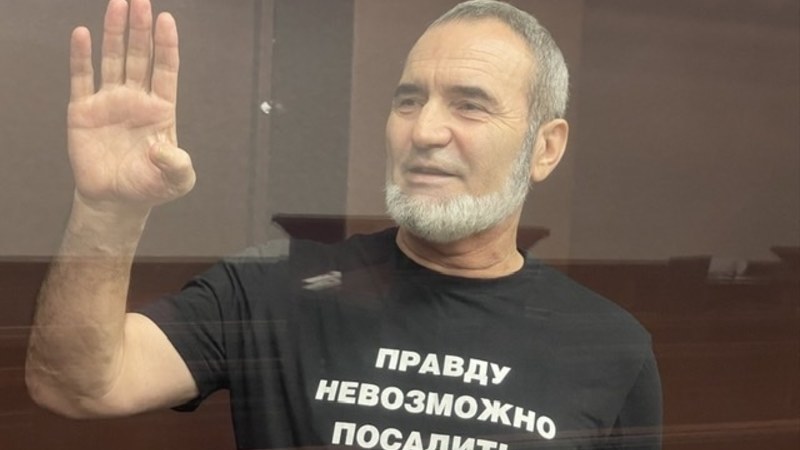
Azamat Eyupov (b. 1963) is a veteran of the Crimean Tatar national movement and was one of around 20 Crimean Tatars, most in their fifties and sixties who took part in a peaceful picket on Red Square in Moscow on 10 July 2019, calling for an end to ethnic and religious persecution in Russian-occupied Crimea. That was quite enough to get him targeted by the FSB, and arrested on the same conveyor belt charges.
Eyupov was charged with the more serious ‘organizing’ a Hizb ut-Tahrir group (under Article 205.5 § 1) and of ‘planning to violently seize power’ (under Article 278). All of this would be surreal under any circumstances, but in Eyupov’s case there was even evidence, presented in court, that he had not taken part in the illicitly taped conversation and that the voice on the tape belonged to somebody else.
Neither that, nor the manifest flaws in the charges and ‘evidence’, made any difference to ‘judges’ Kirill Kravtsov (presiding); Alexei Magomadov and Vladimir Tsybylnik from Russia’s Southern District Military Court. On 19 July 2022 they sentenced him to 17 years, with the first three in a prison, the harshest of all Russian penal institutions, with the rest in a harsh-regime colony.
As well as all the other reasons for overturning this appalling sentence, the Military court of appeal in Vlasikha (Moscow region) also ignored the fact that Eyupov suffers from heart diseases and has had four mini strokes already while imprisoned. On 24 May 2023, the appeal was rejected, and Azamat Eyupov has now been sent thousands of kilometres away from his family, to a prison in the Chelyabinsk region to begin a sentence he cannot possibly survive.
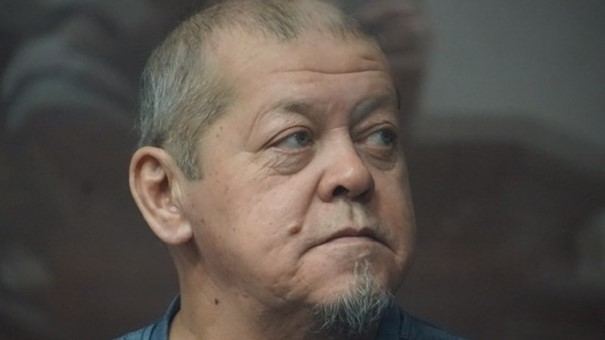
Zekirya Muratov (b. 1957) is a pensioner and former musician who has several grave medical conditions which make it next to impossible that he could survive the 11.5-year sentence handed down and then upheld by different ‘judges’ from these same Russian ‘courts’.
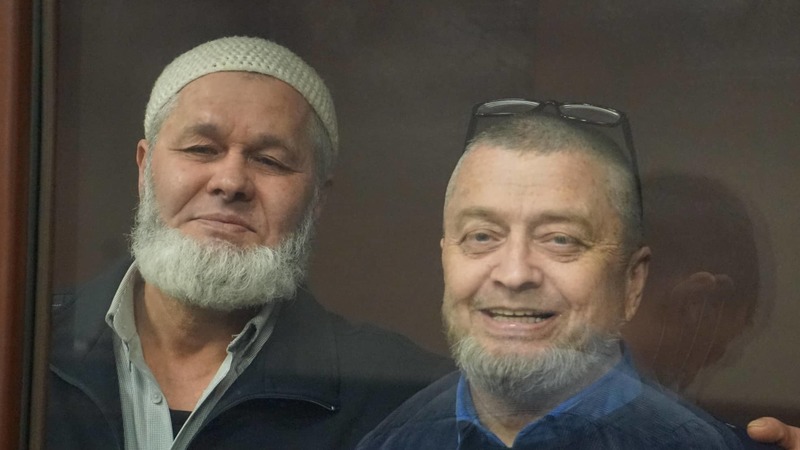
Servet Gaziev (b. 1960) is one of the 25 Crimean Tatar civic journalists and civic activists whose arrests in March 2019 or soon afterwards elicited international condemnation. Russia tried to minimize public attention to this evident attempt to crush the Crimean Tatar human rights movement by splitting up the ‘trial’ into five clones, with that in which he and the late Dzhemil Gafarov were ‘on trial’ being constantly postponed because both men were in excruciating pain or too weak from their multiple illnesses to attend the hearings.
Despite this both Servet Gaziev and Dzhemil Gafarov (b. 1962) were sentenced to 13 years, although the court was well aware that at least Gafarov’s life was in immediate danger. He died in prison, far from his family, on 10 February 2023. This, however, did not stop the court of appeal in Vlasikha, which on 11 September, upheld both men’s effective death sentences.
The above political prisoners are not the only Crimean Tatar and other Ukrainian political prisoners whose health or life are in danger. See: Russia has killed two Ukrainian political prisoners and is endangering at least 21 others
